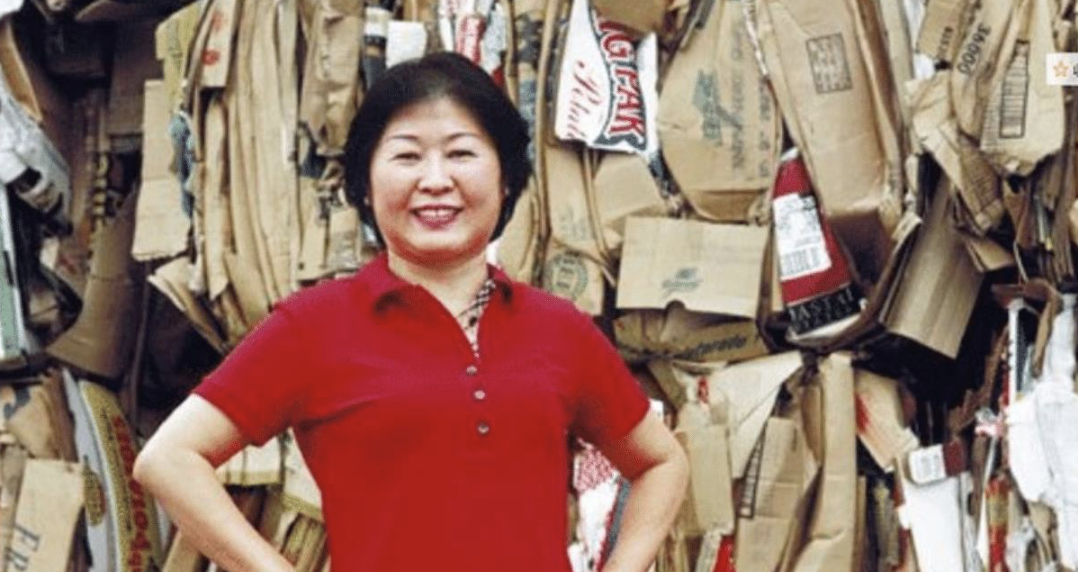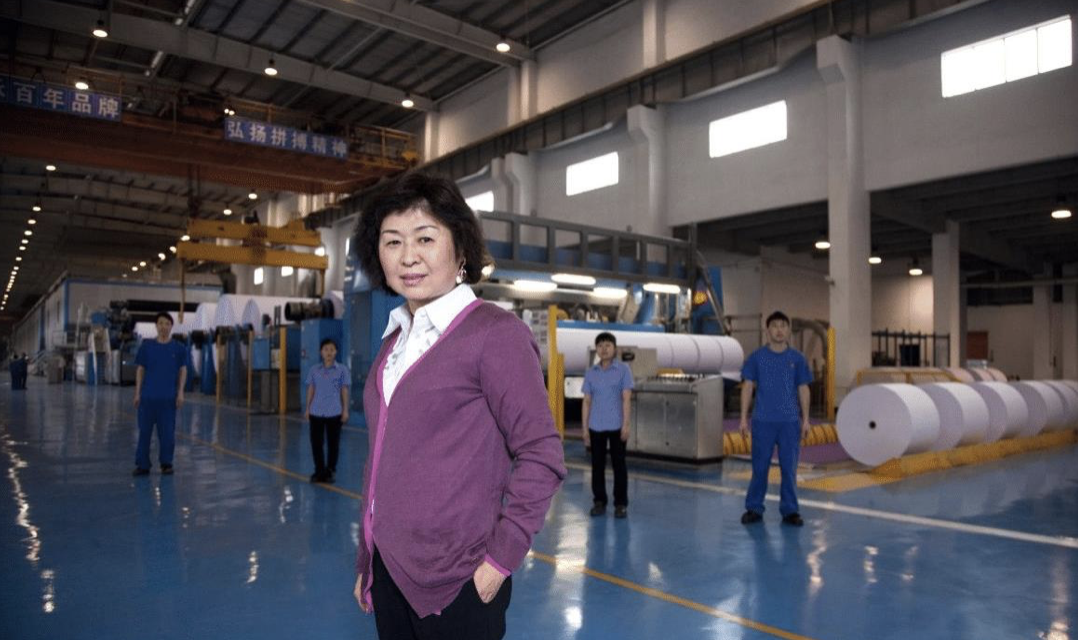Born in 1957 into a poor family in Guangdong, Zhang Yin's childhood was marked by hardship. Meat was a rare luxury, enjoyed only during Lunar New Year. Tragedy struck when her father passed away when she was 15. As the eldest child, Zhang Yin left school to help her mother raise her younger siblings.
With no formal education, she took on odd jobs. Through hard work and sharp business acumen, she became an accountant at a small company in Shenzhen.
A turning point came during a business trip to Hong Kong. She was astonished by the amount of discarded paper, a scarce resource in mainland China. This sparked the idea of a paper recycling business.
Despite her family's objections, at 27, Zhang Yin borrowed a small amount of money and moved to Hong Kong. "I don't want to struggle like this my whole life," she told her mother.
 |
Zhang Yin in her early days in Hong Kong, collecting scrap materials. Photo: Sohu |
Zhang Yin in her early days in Hong Kong, collecting scrap materials. Photo: Sohu
Starting a business in Hong Kong was challenging. Zhang Yin began with a used tricycle, collecting scrap paper throughout the city. Her lunch often consisted of steamed buns and pickled vegetables.
The work was not only arduous but also rife with scams. The collected paper was often mixed with wet, moldy paper, and even trash, to increase its weight. To ensure quality, Zhang Yin meticulously inspected every shipment. This made her a target for a gang that monopolized the paper recycling industry in Hong Kong.
She faced threats and vandalism but remained undeterred. Her resilience eventually forced the gang to back down, earning her respect within the industry.
Recognizing the huge demand for recycled paper in China, in 1988, she established her first paper mill in Dongguan, gradually creating a closed-loop business.
During a trip to the US, she observed the abundant supply of scrap paper and the country's advanced recycling system. A step ahead of her competitors, she and her husband founded Chung Nam Holdings in the US, specializing in collecting scrap paper and shipping it to their factories in China.
 |
Zhang Yin and her husband established a paper mill in the US, specializing in producing high-quality cardboard in the mid-1990s. Photo: Sohu |
Zhang Yin and her husband established a paper mill in the US, specializing in producing high-quality cardboard in the mid-1990s. Photo: Sohu
In 1996, Zhang Yin invested 110 million CNY to establish Nine Dragons Paper, specializing in producing high-quality cardboard. With a stable supply of raw materials from the US, Nine Dragons quickly dominated the market, reaching an annual output of 200,000 tons.
The company generated an average profit of 7 billion CNY annually, earning her the title of "Paper Queen" and making her one of the richest women in China.
In 2005, Nine Dragons Paper surpassed Chenming Paper to become the largest paper producer in China, the second largest in Asia, and the eighth largest globally.
A year later, the company was listed on the Hong Kong Stock Exchange. Zhang Yin's net worth reached 4.1 billion USD, making her the richest woman in China according to the Hurun Rich List.
In 2010, at 53, she became the world's richest self-made female billionaire with an estimated net worth of 38 billion CNY. In 2024, she continued to be listed among the richest women in Asia.
However, Zhang Yin's empire has also faced accusations of pollution. Her paper mills were allegedly responsible for discharging large amounts of untreated toxic gases and wastewater, severely impacting the environment.
As public complaints grew and China tightened regulations, Zhang Yin shifted her focus. She gradually relocated her factories to the US. After establishing a foothold in the US market, she also changed her citizenship.
This move sparked intense criticism in her homeland. Many accused her of "making a fortune by destroying China's environment and then walking away," and criticized her for being irresponsible towards the land that had nurtured her.
Minh Phuong (Sohu, Sina)












